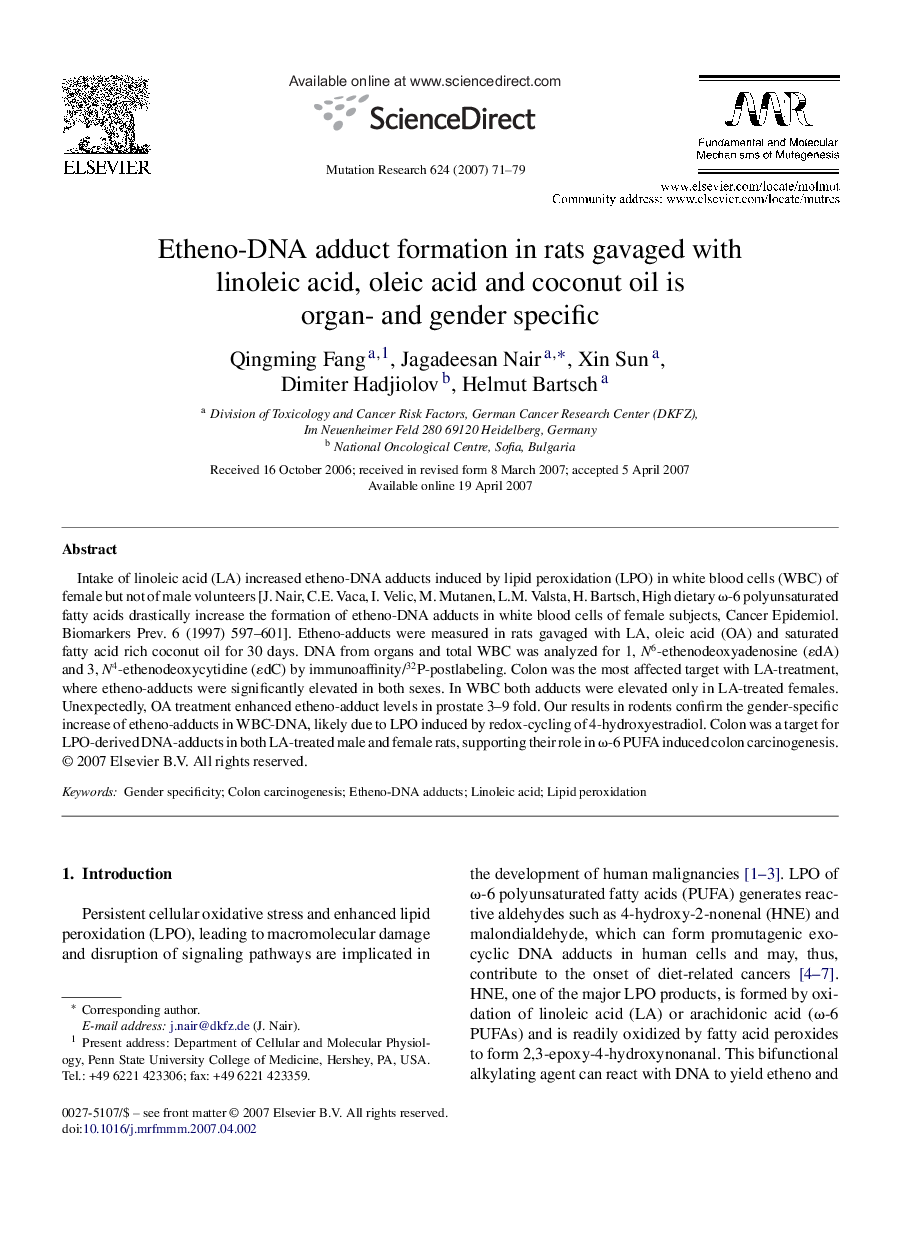| Article ID | Journal | Published Year | Pages | File Type |
|---|---|---|---|---|
| 2147323 | Mutation Research/Fundamental and Molecular Mechanisms of Mutagenesis | 2007 | 9 Pages |
Abstract
Intake of linoleic acid (LA) increased etheno-DNA adducts induced by lipid peroxidation (LPO) in white blood cells (WBC) of female but not of male volunteers [J. Nair, C.E. Vaca, I. Velic, M. Mutanen, L.M. Valsta, H. Bartsch, High dietary Ï-6 polyunsaturated fatty acids drastically increase the formation of etheno-DNA adducts in white blood cells of female subjects, Cancer Epidemiol. Biomarkers Prev. 6 (1997) 597-601]. Etheno-adducts were measured in rats gavaged with LA, oleic acid (OA) and saturated fatty acid rich coconut oil for 30 days. DNA from organs and total WBC was analyzed for 1, N6-ethenodeoxyadenosine (ÉdA) and 3, N4-ethenodeoxycytidine (ÉdC) by immunoaffinity/32P-postlabeling. Colon was the most affected target with LA-treatment, where etheno-adducts were significantly elevated in both sexes. In WBC both adducts were elevated only in LA-treated females. Unexpectedly, OA treatment enhanced etheno-adduct levels in prostate 3-9 fold. Our results in rodents confirm the gender-specific increase of etheno-adducts in WBC-DNA, likely due to LPO induced by redox-cycling of 4-hydroxyestradiol. Colon was a target for LPO-derived DNA-adducts in both LA-treated male and female rats, supporting their role in Ï-6 PUFA induced colon carcinogenesis.
Related Topics
Life Sciences
Biochemistry, Genetics and Molecular Biology
Cancer Research
Authors
Qingming Fang, Jagadeesan Nair, Xin Sun, Dimiter Hadjiolov, Helmut Bartsch,
